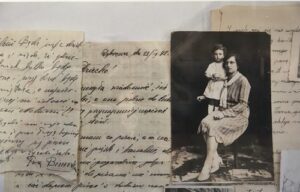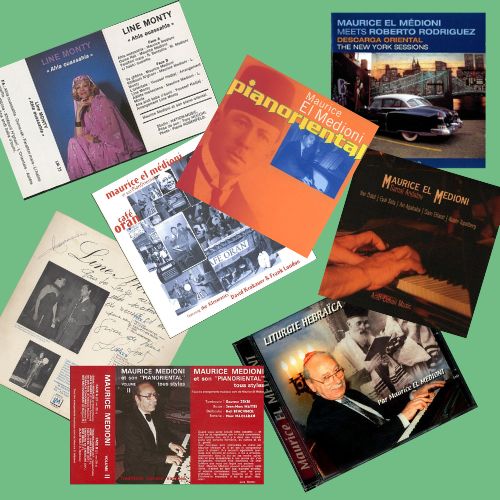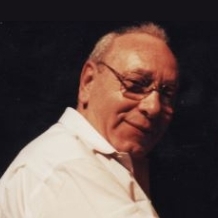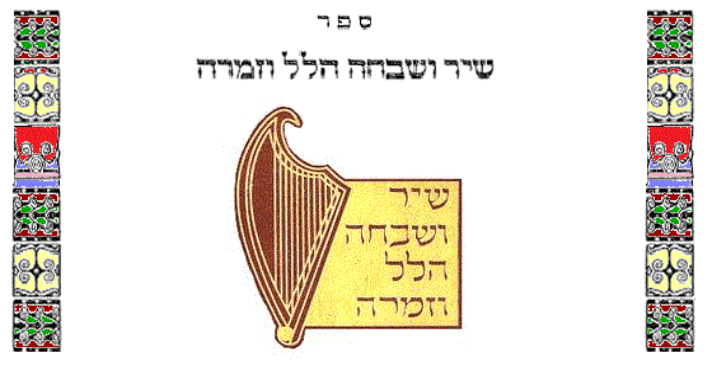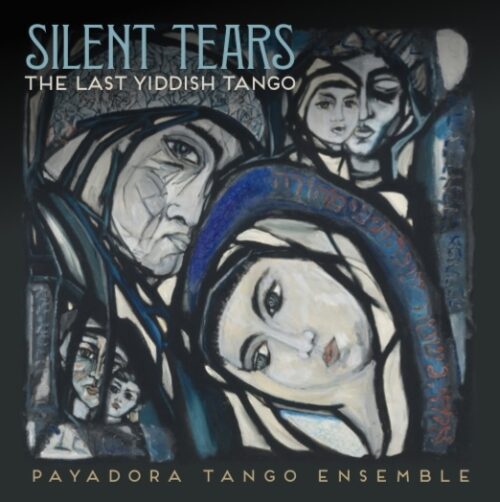
PAYADORA TANGO ENSEMBLE
Six Degrees Records, 01-2023
The CD Silent Tears : The Last Yiddish Tango is based on testimonies of women who survived the Holocaust. The project began when Dr. Paula David, a social worker at a Toronto Jewish care home, launched in the 1990s a poetry project to help 15 women Holocaust survivors to deal with long term trauma from horrific crimes such as sexual violence, human experimentation and forced sterilization. Three of the songs on this album are taken from these poems published in 1995.
Five other songs are based on Molly Applebaum’s diary and memoirs published under the title Buried Words in 2017. Molly Applebaum was born on October 27, 1930, in Kraków, Poland. When Germany invaded Poland in 1939, Molly was prohibited from attending school. By 1941, Jews were being rounded up and sent to death camps including Belzec. Molly’s mother, Sara Weissenberg, arranged a place for Molly and her older cousin Helen to hide with a local farmer named Victor in Dombrowa, Poland. Fearing discovery by neighbours that he was housing Jews (an offense punishable by death), the farmer refused to hide Molly’s younger brother Zygmunt (who couldn’t remain quiet) or her mother Sara.
Both were later murdered by the Nazis. The farmer buried Molly and her cousin in a small wooden box in barn, so cramped that they couldn’t sit up, with just a small hole to breathe through. Molly kept a diary of her ordeal underground, describing the filth, hunger, thirst, cold, lice and other insects, boredom and sexual abuse.
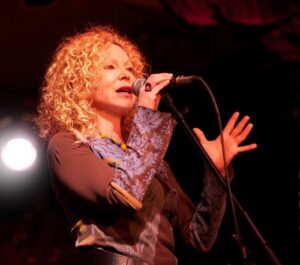
The texts of the English poems have been adapted by Dan Rosenberg and translated into Yiddish; others, originally written in Polish, remain sung in that language.
The music is based on the tango tradition of the interwar period in the Jewish communities of Central Europe. According to Olga Avigail Mieleszczuk, a graduate of the Chopin University of Music in Warsaw, “During the interwar period (1918-1939), Warsaw became the European capital of tango, and the world capital of Yiddish tango (…) More than 3,000 tangos were written during the interwar period in Poland. Many became hits, and most were written and composed by Polish Jews.”
The music on the disc was partly composed by Rebekah Wolkstein and partly drawn from the work of composers, such as Artur Gold, who were killed in the camps. There is also a Romani waltz played on the accordion by Moldovan virtuoso Sergiu Popa reminding us that the Roma were also victims of the Nazi genocide.
Main performers:
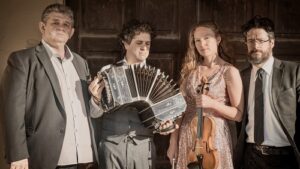
Aviva Chernick (vocals)
Marta Kosiorek (vocals)
Lenka Lichtenberg (vocals)
Olga Avigail Mieleszczuk (vocals)
Rebekah Wolkstein (violin, composer)
Drew Jurecka (bandoneon, musical director)
Robert Horvath (piano)
Joseph Phillips (double bass)
Dan Rosenberg (Executive Producer, Artistic Director)
To order the CD:
USA:
EN: https://www.juno.co.uk/products/payadora-tango-silent-tears-the-last-yiddish/918131-01/
Browse Dan Rosenberg’s website
